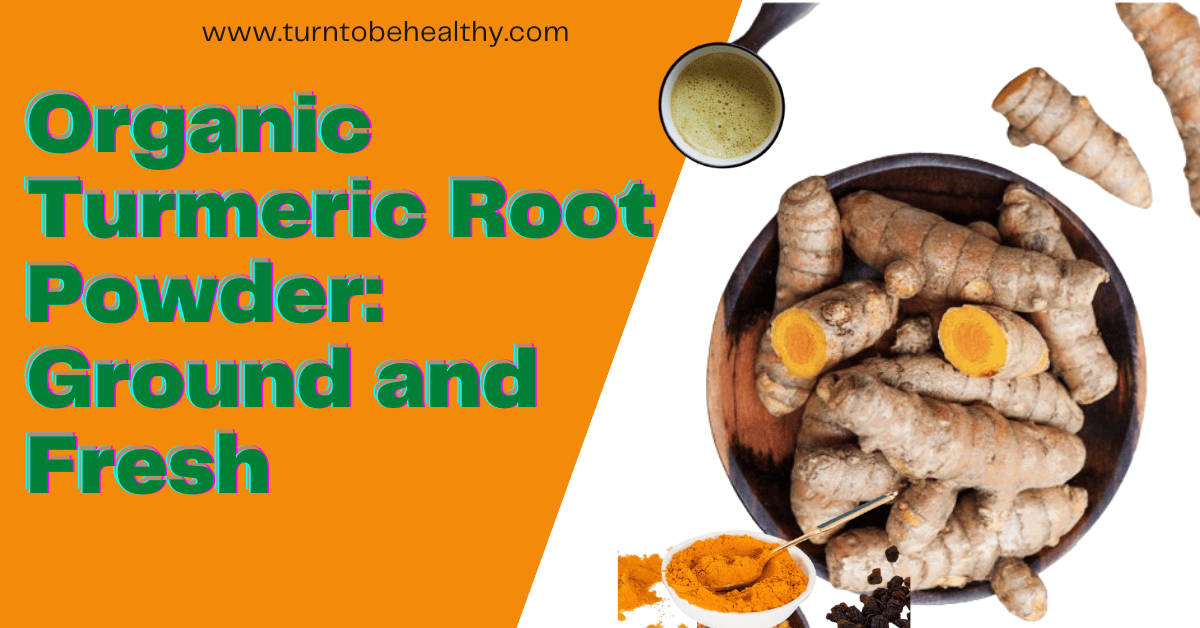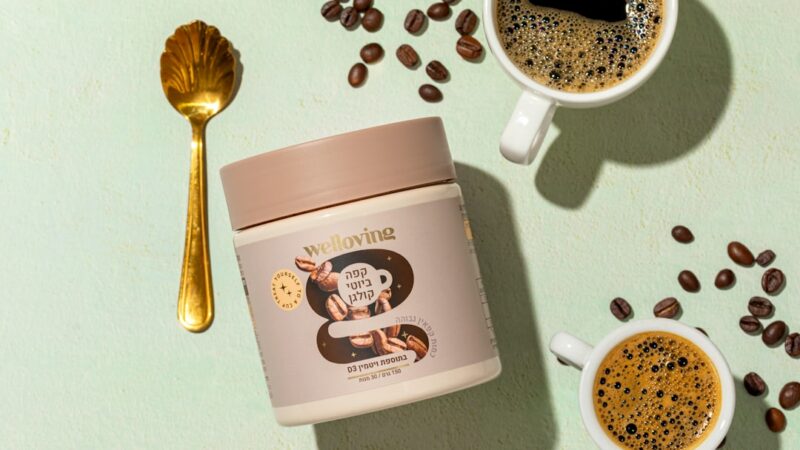“Does Collagen Powder Work? Separating Fact from Fiction”

Collagen powder has become increasingly popular in the health and wellness industry in recent years. Many people are turning to collagen powder as a way to improve their skin, hair, nails, and overall health. But what exactly is collagen powder and how does it differ from other collagen supplements?
Collagen powder is a dietary supplement that is derived from the connective tissues of animals, such as cows, pigs, or fish. It is made by hydrolyzing collagen, which breaks it down into smaller peptides that are easier for the body to absorb. Collagen powder is typically flavorless and odorless, making it easy to incorporate into your daily routine.
Unlike other collagen supplements, such as creams or pills, collagen powder is taken orally and is believed to work from the inside out. It is thought to support collagen production in the body, which is important for maintaining healthy skin, hair, nails, and joints. Collagen powder is also believed to have other health benefits, such as improving digestion and promoting weight loss.
Table of Contents
Key Takeaways
- Collagen is a popular supplement that comes in powder form.
- Collagen is important for skin, joint, and bone health.
- Collagen powder works by providing the body with amino acids that are essential for collagen production.
- Research suggests that collagen powder may improve skin elasticity, joint pain, and bone density.
- There are different types of collagen powder, including bovine, marine, and chicken collagen.
What is Collagen and Why is it Important?
Collagen is the most abundant protein in the human body and plays a crucial role in maintaining the structure and integrity of our tissues. It is found in our skin, hair, nails, bones, muscles, tendons, ligaments, and even our blood vessels. Collagen provides strength and elasticity to these tissues, helping them to function properly.
As we age, our bodies naturally produce less collagen, which can lead to a variety of issues such as wrinkles, sagging skin, brittle nails, and joint pain. This is why many people turn to collagen supplements like collagen powder to help replenish their body’s collagen levels.
Collagen is particularly important for our skin as it helps to maintain its firmness and elasticity. It also plays a role in wound healing and can help reduce the appearance of scars. In addition, collagen is important for the health of our hair and nails, as it provides strength and structure to these tissues.
Collagen is also essential for the health of our joints. It helps to cushion and lubricate the joints, reducing friction and preventing wear and tear. This can help alleviate joint pain and improve mobility, making collagen powder a popular supplement among athletes and those with joint issues.
The Science Behind Collagen Powder: How Does it Work?
Collagen powder is made by hydrolyzing collagen, which breaks it down into smaller peptides. These peptides are then easily absorbed by the body and used to support collagen production.
When we consume collagen powder, the peptides are broken down further in our digestive system and absorbed into the bloodstream. From there, they are transported to the cells that produce collagen, such as fibroblasts in the skin or chondrocytes in the joints.
Once inside these cells, the peptides stimulate collagen synthesis, leading to an increase in collagen production. This can help improve the health and appearance of our skin, hair, nails, and joints.
In addition to stimulating collagen production, collagen powder also provides amino acids that are necessary for collagen synthesis. These amino acids include glycine, proline, and hydroxyproline. By providing these building blocks, collagen powder helps ensure that our bodies have everything they need to produce collagen effectively.
Benefits of Collagen Powder: What Does Research Say?
There is a growing body of research supporting the benefits of collagen powder for various aspects of health. Here are some of the potential benefits that have been studied:
1. Skin Health: Several studies have shown that collagen supplementation can improve skin elasticity, hydration, and overall appearance. One study found that women who took a collagen supplement for 8 weeks experienced a significant reduction in wrinkles and an improvement in skin elasticity compared to those who took a placebo.
2. Hair and Nail Health: Collagen is an important component of hair and nails, and supplementing with collagen powder may help improve their strength and appearance. One study found that women who took a collagen supplement for 6 months experienced a significant increase in hair thickness and a reduction in nail brittleness.
3. Joint Health: Collagen is a major component of our joints, and supplementing with collagen powder may help reduce joint pain and improve mobility. One study found that athletes who took a collagen supplement for 24 weeks experienced a significant reduction in joint pain compared to those who took a placebo.
4. Digestive Health: Collagen is important for the health of our digestive system, as it helps to maintain the integrity of the gut lining. Some studies have shown that collagen supplementation can help improve symptoms of conditions such as leaky gut syndrome and irritable bowel syndrome.
5. Weight Loss: Collagen powder is often promoted as a weight loss supplement, as it is believed to promote satiety and reduce appetite. While more research is needed in this area, some studies have shown that collagen supplementation can lead to a reduction in body weight and an increase in lean muscle mass.
It’s important to note that while these studies show promising results, more research is needed to fully understand the benefits of collagen powder and its potential mechanisms of action.
Types of Collagen Powder: Which Ones are Effective?
There are several different types of collagen powder available on the market, each derived from different sources and with slightly different properties. Here are some of the most common types:
1. Type I Collagen: This is the most abundant type of collagen in the body and is found in our skin, bones, tendons, and ligaments. Type I collagen is often derived from bovine (cow) or marine (fish) sources.
2. Type II Collagen: This type of collagen is found primarily in our cartilage and is important for joint health. Type II collagen is often derived from chicken or other poultry sources.
3. Type III Collagen: This type of collagen is often found alongside type I collagen and is important for the health of our skin, blood vessels, and organs. Type III collagen is often derived from bovine or marine sources.
4. Type V Collagen: This type of collagen is found in smaller amounts in our skin, hair, and nails. It is often derived from bovine or marine sources.
It’s important to choose a collagen powder that contains the type of collagen that is most beneficial for your specific health concerns. For example, if you are looking to improve joint health, a collagen powder that contains type II collagen may be more effective.
How to Choose the Best Collagen Powder for Your Needs

When choosing a collagen powder, there are several factors to consider to ensure you are getting a high-quality product that meets your individual needs. Here are some tips to help you choose the best collagen powder:
1. Quality: Look for a collagen powder that is sourced from high-quality, reputable manufacturers. Choose a product that undergoes third-party testing to ensure its purity and potency.
2. Dosage: Consider the dosage of collagen powder that is recommended for your specific health concerns. Some products may recommend a higher dosage for certain conditions, such as joint pain or skin aging.
3. Ingredients: Read the ingredient list carefully to ensure there are no unnecessary additives or fillers. Look for a product that contains only collagen peptides and any additional ingredients that may be beneficial, such as vitamin C or hyaluronic acid.
4. Source: Consider the source of the collagen powder, whether it is derived from bovine (cow), marine (fish), or poultry sources. Choose a source that aligns with your dietary preferences and any potential allergies or sensitivities.
5. Reviews: Read reviews from other users to get an idea of their experiences with the product. Look for reviews from people who have similar health concerns or goals as you.
It’s also a good idea to consult with a healthcare professional before starting any new supplement, including collagen powder. They can help guide you in choosing the best product for your individual needs and ensure it is safe for you to use.
Potential Side Effects of Collagen Powder: What to Watch Out For
Collagen powder is generally considered safe for most people when taken in recommended dosages. However, there are some potential side effects that you should be aware of:
1. Digestive Issues: Some people may experience digestive issues such as bloating, gas, or diarrhea when first starting collagen powder. This is usually temporary and resolves on its own as the body adjusts to the supplement.
2. Allergic Reactions: Collagen powder is derived from animal sources, so it may cause allergic reactions in people with allergies to these sources. If you have known allergies to bovine, fish, or poultry products, it’s best to avoid collagen powder derived from these sources.
3. Interactions with Medications: Collagen powder may interact with certain medications, such as blood thinners or medications for autoimmune conditions. If you are taking any medications, it’s important to consult with your healthcare professional before starting collagen powder.
To minimize the risk of side effects, it’s important to start with a low dosage of collagen powder and gradually increase it as tolerated. It’s also a good idea to choose a high-quality product that undergoes third-party testing to ensure its purity and potency.
Collagen Powder vs. Other Collagen Supplements: What’s the Difference?
Collagen powder is just one of many collagen supplements available on the market. Here are some of the key differences between collagen powder and other forms of collagen supplements:
1. Absorption: Collagen powder is taken orally and is believed to be easily absorbed by the body. Other forms of collagen supplements, such as creams or pills, may have lower absorption rates and may not be as effective.
2. Convenience: Collagen powder is typically flavorless and odorless, making it easy to incorporate into your daily routine. Other forms of collagen supplements may be more cumbersome to use, such as creams that need to be applied topically or pills that need to be swallowed.
3. Dosage: Collagen powder allows for more flexibility in dosage compared to other forms of collagen supplements. You can easily adjust the dosage of collagen powder based on your individual needs and health concerns.
4. Cost: Collagen powder is often more cost-effective compared to other forms of collagen supplements. Creams and serums can be expensive, and pills may require higher dosages to achieve the same benefits as collagen powder.
It’s important to choose the form of collagen supplement that works best for your individual needs and preferences. Some people may prefer the convenience of creams or pills, while others may find it easier to incorporate collagen powder into their daily routine.
Real-Life Experiences: User Reviews and Testimonials
Many people have reported positive experiences with collagen powder and have seen improvements in their skin, hair, nails, joints, and overall health. Here are some real-life experiences from users who have tried collagen powder:
– Sarah, a 35-year-old woman, started taking collagen powder to improve the appearance of her skin. After a few months of consistent use, she noticed that her skin looked more hydrated and had a healthy glow. She also noticed that her hair and nails were stronger and less prone to breakage.
– John, a 45-year-old man, started taking collagen powder to help alleviate joint pain caused by arthritis. After a few weeks of taking the supplement, he noticed a significant reduction in pain and improved mobility in his joints. He was able to resume activities that he had previously avoided due to pain.
– Emily, a 28-year-old woman, started taking collagen powder to improve her digestion. She had been experiencing symptoms of leaky gut syndrome, such as bloating and food sensitivities. After a few months of taking collagen powder, she noticed a significant improvement in her symptoms and was able to reintroduce foods that she had previously avoided.
While these testimonials are anecdotal and may not be representative of everyone’s experience, they provide insight into the potential benefits of collagen powder. It’s important to remember that individual results may vary and that more research is needed to fully understand the effects of collagen powder on different aspects of health.
Is Collagen Powder Worth the Hype?
Collagen powder has gained popularity in the health and wellness industry for its potential benefits for skin, hair, nails, joints, and overall health. While more research is needed to fully understand the effects of collagen powder, there is growing evidence supporting its use.
Collagen powder is believed to work by stimulating collagen production in the body and providing essential amino acids for collagen synthesis. It has been studied for its potential benefits in improving skin elasticity, reducing wrinkles, strengthening hair and nails, alleviating joint pain, improving digestion, and promoting weight loss.
When choosing a collagen powder, it’s important to consider factors such as quality, dosage, ingredients, and individual needs. It’s also important to be aware of potential side effects and to use collagen powder safely.
In conclusion, collagen powder may be worth trying for those looking to improve their skin, hair, nails, joints, or overall health. However, it’s important to do your own research and consult with a healthcare professional before starting any new supplement. They can help guide you in choosing the best collagen powder for your individual needs and ensure it is safe for you to use.
If you’re interested in learning more about the benefits of collagen powder and its impact on overall health, you may also want to check out this informative article on TurnToBeHealthy.com. Titled “3 Painless Symptoms of Kidneys Not Filtering,” it delves into the importance of kidney function and how collagen supplementation can potentially support kidney health. Understanding the connection between collagen powder and kidney function is crucial for those looking to make informed decisions about their well-being. Read more here.
FAQs
What is collagen powder?
Collagen powder is a dietary supplement made from animal sources such as bones, skin, and cartilage. It is a protein that is found in the body and is responsible for maintaining the health of the skin, hair, nails, bones, and joints.
What are the benefits of taking collagen powder?
Collagen powder is believed to improve skin elasticity, reduce wrinkles and fine lines, strengthen hair and nails, and support joint health. It may also improve gut health and aid in weight loss.
Is there scientific evidence to support the benefits of collagen powder?
There is limited scientific evidence to support the benefits of collagen powder. Some studies have shown that it may improve skin elasticity and reduce wrinkles, but more research is needed to confirm these findings.
Is collagen powder safe to consume?
Collagen powder is generally considered safe to consume. However, it is important to choose a reputable brand and follow the recommended dosage. People with allergies to animal products should avoid collagen powder.
Can collagen powder be used as a replacement for a healthy diet?
No, collagen powder should not be used as a replacement for a healthy diet. It is important to consume a balanced diet that includes a variety of nutrients to support overall health.
How should collagen powder be consumed?
Collagen powder can be consumed by mixing it with water, juice, or a smoothie. It can also be added to recipes such as soups, stews, and baked goods. The recommended dosage varies by brand, so it is important to follow the instructions on the packaging.









